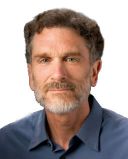
Smoking
Acupuncture for Smoking Cessation, Addiction and Insomnia
Small Studies and Mixed Findings Limit Significance
Posted January 19, 2018
Acupuncture is not effective for smoking cessation
Acupuncture is widely used to treat individuals who wish to stop smoking however findings of most controlled trials on acupuncture for smoking cessation have been negative or equivocal. Three meta-analyses of sham-controlled studies on the efficacy of acupuncture for smoking cessation (2,000 total subjects) concluded that therapeutic acupuncture protocols and sham acupuncture have equivalent efficacy, suggesting a significant placebo effect. Longer sham-controlled studies are needed to determine whether more frequent acupuncture treatment following a specific protocol or a greater number of total treatments is effective for smoking cessation.
Acupuncture is not effective for reducing symptoms of nicotine withdrawal or cocaine addiction but may reduce cocaine craving after abstinence is achieved
Two systematic reviews of sham-controlled trials concluded that both conventional acupuncture and electro-acupuncture are equally ineffective in reducing symptoms of nicotine withdrawal and controlling cocaine addiction. A large study examining three auricular acupuncture protocols (i.e. a technique in which small needles or 'seeds' are applied to the ear) for relapse prevention in narcotics abusers concluded that all three protocols were associated with reductions in drug use over time. An 8-week randomized sham-controlled study (32 subjects) compared acupuncture with two prescription medications used for craving reduction versus placebo in cocaine addicts on methadone maintenance therapy. Half of the subjects dropped out however almost 90 percent of those who completed the study achieved abstinence by the end of the study. Patients who achieved abstinence reported diminished craving and significantly improved mood.
Acupuncture may be beneficial for insomnia in individuals with schizophrenia or anxiety disorders
The absence of standardized acupuncture treatment protocols for insomnia has interfered with efforts to design rigorously controlled double-blind studies. A systematic review of all studies on acupuncture for insomnia published in the English language through 2002 identified few studies for analysis because most studies had not employed randomized, double-blind procedures. Acupuncture may be beneficial for insomnia associated with generalized anxiety and schizophrenia. In a large-case series (500 subjects), schizophrenics reported significant improvements in sleep following acupuncture treatments. In a small sham-controlled trial (40 subjects), patients complaining of insomnia were diagnosed using Chinese medical assessment methods and randomized to an acupuncture protocol addressing the specific energetic “imbalance” underlying their sleep disturbance versus a sham acupuncture protocol. Significant and sustained improvements in the subjective quality of sleep and changes on EEG recordings during sleep reflecting normalization of sleep were found in the treatment group but not in the sham group.
Acupuncture is generally safe but there are rare reports of serious complications
Uncommon transient adverse effects associated with acupuncture include bruising, fatigue, and nausea. Infrequent cases of infection with human immunodeficiency virus (HIV), hepatitis B, and hepatitis C have been reported when non-sterilized needles are used. Rare cases of serious medical complications such as pneumothorax and cardiac tamponade have been reported as a result of accidental puncturing of the lungs or the pericardium.
Final words
Acupuncture is not effective for smoking cessation or reducing symptoms of nicotine or cocaine withdrawal but may reduce cocaine craving following withdrawal. Acupuncture is probably an effective treatment of insomnia in individuals diagnosed with schizophrenia or anxiety disorders, however studies need to be done in the general population to confirm general beneficial effects on insomnia.

